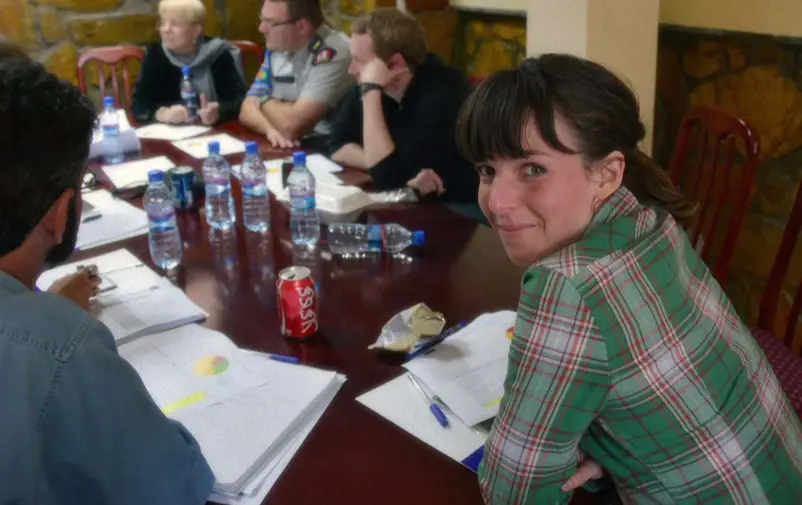
The 1325 Scholarship was established in memory of gender equality expert and peacebuilder Zaida Catalán.
The Users’ Guide helps policymakers and assistance providers identify specific challenges, strengths and weaknesses related to the rule of law in the service delivered by a specific public agency to its end users.
It is a self-assessment tool that has been developed with a particular focus on local governance of service delivery and on public service providers with a high degree of interaction with individuals, and decision-making that affects the rights and interests of individuals.
The self-assessment allows an analysis of the degree of respect for the principles of the rule of law in public administration. It is based on six commonly accepted rule of law principles that are fundamental to effective, transparent and accountable public sector governance and service delivery.
The main focus of the tool is on key qualitative rights and justice issues for the individual in relation to public administration. The self-assessment, and the six rule of law principles on which it is based, emphasises the demand side of public administration, that is, the services that individual service users consider essential and the aspects they consider problematic, in addition to the issues that civil servants see as the most challenging.
MORE FROM HOME
Are you a young peacebuilder at the beginning of your career with a strong commitment to women, peace and security? Do you have experience working in this field in the Democratic Republic of Congo or Afghanistan and want to take your commitment to the next level? Then you have the opportunity to apply for the 1325 scholarship for 2026.
2025-11-06 15:30FBA has both increased and adapted its work in Ukraine in the wake of Russia's invasion.
FBA in UkraineKlara Grenhagen works as a specialist at FBA's Africa unit with a focus on dialogue, reconciliation and peace processes.
More about our expertsFBA is part of Sweden’s development aid within the area of peace and security
Read more about the countries where we work